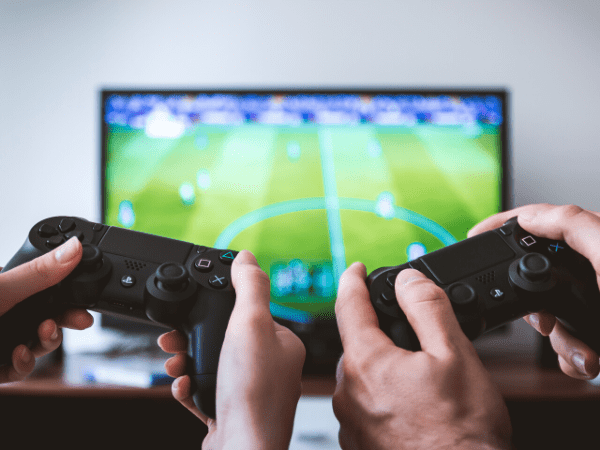Just In
- 28 min ago

- 4 hrs ago

- 4 hrs ago

- 10 hrs ago

Don't Miss
- Finance
 1:3 Bonus Share, Rs 13.25/Share Dividend: Buy Maharatna PSU, TP Rs 355, Fundraise Approved
1:3 Bonus Share, Rs 13.25/Share Dividend: Buy Maharatna PSU, TP Rs 355, Fundraise Approved - Sports
 Who Won Yesterday's IPL Match 33? PBKS vs MI, IPL 2024 on April 17: Mumbai Indians Escape Last-Ditched Fight by Punjab Kings To Win
Who Won Yesterday's IPL Match 33? PBKS vs MI, IPL 2024 on April 17: Mumbai Indians Escape Last-Ditched Fight by Punjab Kings To Win - Movies
 Do Aur Do Pyaar OTT Release Date & Platform: When & Where To Watch Vidya Balan’s Film After Theatrical Run?
Do Aur Do Pyaar OTT Release Date & Platform: When & Where To Watch Vidya Balan’s Film After Theatrical Run? - News
 BRS Chief K Chandrasekhar Rao Slams BJP, Says K Kavitha's Arrest Is Vendetta Politics
BRS Chief K Chandrasekhar Rao Slams BJP, Says K Kavitha's Arrest Is Vendetta Politics - Automobiles
 Aprilia RS 457 Accessories: A Detailed Look At The Prices
Aprilia RS 457 Accessories: A Detailed Look At The Prices - Education
 Karnataka SSLC Result 2024 Soon, Know How to Check Through Website, SMS and Digilocker
Karnataka SSLC Result 2024 Soon, Know How to Check Through Website, SMS and Digilocker - Technology
 Nothing Ear, Ear a With ANC, Up to 42.5 Hours of Battery Launched; Check Price and Availability
Nothing Ear, Ear a With ANC, Up to 42.5 Hours of Battery Launched; Check Price and Availability - Travel
Telangana's Waterfall: A Serene Escape Into Nature's Marvels
What Is Gaming Disorder And How It Can Be Treated
Video games can be highly engrossing and if you are addicted to them, then you could be suffering from a mental health condition. In 2018, the WHO officially acknowledged gaming disorder as a mental health condition and added the disorder to the International Classification of Diseases (ICD-11). ICD-11 is used by medical professionals to diagnose conditions and by researchers to categorize the conditions.
According to ICD-11, people who are addicted to games have difficulty in controlling the amount of time they spend playing digital or video games. They also prioritize gaming over other interests or activities.

According to the American Journal of Psychiatry, an estimate of 160 million American adults play video games aged below 18 to above 50 [1] . As per a KPMG report, 250 million Indians were hooked on to online games in 2018.
In this article, we'll discuss what is gaming disorder, its signs and symptoms and how it can be treated.
What Is Gaming Disorder? [2]
Gaming disorder is a serious disorder, which causes addiction to such an extent that gamers spend many hours playing video or online games and this makes them have a strong emotional attachment to this behaviour. This results in fewer social connections and has a negative effect on education, relationships, family, and work [3] .

Symptoms Of Gaming Disorder [4]
According to the WHO, a person with gaming disorder will show the following symptoms for 12 months. The symptoms are as follows:
- Lack of control over gaming habits
- Not showing interest in other activities
- Playing games despite having a negative impact on your life
-
Mood
disorders
like
stress,
anxiety
and
depression
Feeling bad when you can't play - Not being able to quit playing games

Diagnosis Of Gaming Disorder
Medical professionals use questionnaires and ask questions to help determine whether the person has gaming disorder or not.

Treatment Of Gaming Disorder [5]
- Family help - If gaming disorder is worsening the individual's behaviour and negatively affecting his relationships with family members, the family members should intervene and seek help.
- Psychoeducation - This type of treatment involves educating the person about the harmful effects of gaming disorder and how it affects mental health.
- A change in lifestyle - A person addicted to video games should change his/her lifestyle pattern and explore his/her skills and abilities.
- Intrapersonal - This treatment option helps in building self-esteem, exploring identity and increasing emotional intelligence.
- Interpersonal - This type of treatment allows an individual to learn how to interact with others by working on their communication skills.
How To Prevent Gaming Disorder
- Maintain rules about screen time and stick to them
- Communicate with your near and dear ones
- Keep your phone and gadgets out of your bedroom so that you don't play at night
- Exercise regularly
- [1] Przybylski, A. K., Weinstein, N., & Murayama, K. (2016). Internet gaming disorder: Investigating the clinical relevance of a new phenomenon.American Journal of Psychiatry,174(3), 230-236.
- [2] González-Bueso, V., Santamaría, J. J., Fernández, D., Merino, L., Montero, E., Jiménez-Murcia, S., … Ribas, J. (2018). Internet Gaming Disorder in Adolescents: Personality, Psychopathology and Evaluation of a Psychological Intervention Combined With Parent Psychoeducation.Frontiers in psychology,9, 787.
- [3] Stockdale, L., & Coyne, S. M. (2018). Video game addiction in emerging adulthood: Cross-sectional evidence of pathology in video game addicts as compared to matched healthy controls.Journal of affective disorders,225, 265-272.
- [4] Kaptsis, D., King, D. L., Delfabbro, P. H., & Gradisar, M. (2016). Withdrawal symptoms in Internet gaming disorder: A systematic review.Clinical Psychology Review,43, 58-66.
- [5] Torres-Rodríguez, A., Griffiths, M. D., & Carbonell, X. (2018). The treatment of Internet gaming disorder: A brief overview of the PIPATIC program.International Journal of Mental Health and Addiction,16(4), 1000-1015.
-
 disorders cureWhat Is ‘Gaming Addiction’? What Are Its Symptoms & Treatment?
disorders cureWhat Is ‘Gaming Addiction’? What Are Its Symptoms & Treatment? -
 health20-Year-Old Man In China Suffers From Delusional Love Disorder, Know What Is Erotomania And Its Signs
health20-Year-Old Man In China Suffers From Delusional Love Disorder, Know What Is Erotomania And Its Signs -
 healthPremam Movie Director’s Instagram Post: Can You Self-Diagnose Autism Spectrum Disorder?
healthPremam Movie Director’s Instagram Post: Can You Self-Diagnose Autism Spectrum Disorder? -
 healthPTSD Day: 4 Common Causes Of Post Traumatic Stress Disorder
healthPTSD Day: 4 Common Causes Of Post Traumatic Stress Disorder -
 kidsRhinovirus And Enterovirus-D68 In Kids: What You Should Know About The CDC Warning
kidsRhinovirus And Enterovirus-D68 In Kids: What You Should Know About The CDC Warning -
 disorders cureJustin Bieber Diagnosed With Ramsay Hunt Syndrome: Know More About The Disease
disorders cureJustin Bieber Diagnosed With Ramsay Hunt Syndrome: Know More About The Disease -
 disorders cureWhat Is Autocannibalism: The Practice Of Eating Oneself (Biting Nails, Eating Boogers) And Its Causes
disorders cureWhat Is Autocannibalism: The Practice Of Eating Oneself (Biting Nails, Eating Boogers) And Its Causes -
 wellnessHow To Manage The 5 Common Lifestyle Disorders: An Expert's Opinion
wellnessHow To Manage The 5 Common Lifestyle Disorders: An Expert's Opinion -
 disorders cure12 Effective Natural Remedies To Treat Dry Eyes
disorders cure12 Effective Natural Remedies To Treat Dry Eyes -
 disorders cureWhat Causes Eyelid Twitches (Myokymia) And How To Treat It
disorders cureWhat Causes Eyelid Twitches (Myokymia) And How To Treat It -
 disorders cureAvoidant Personality Disorder: Causes, Symptoms, Diagnosis And Treatment
disorders cureAvoidant Personality Disorder: Causes, Symptoms, Diagnosis And Treatment -
 wellnessStool Transplant Effective For Treating Intestinal Disorders, Claims Study
wellnessStool Transplant Effective For Treating Intestinal Disorders, Claims Study


 Click it and Unblock the Notifications
Click it and Unblock the Notifications



